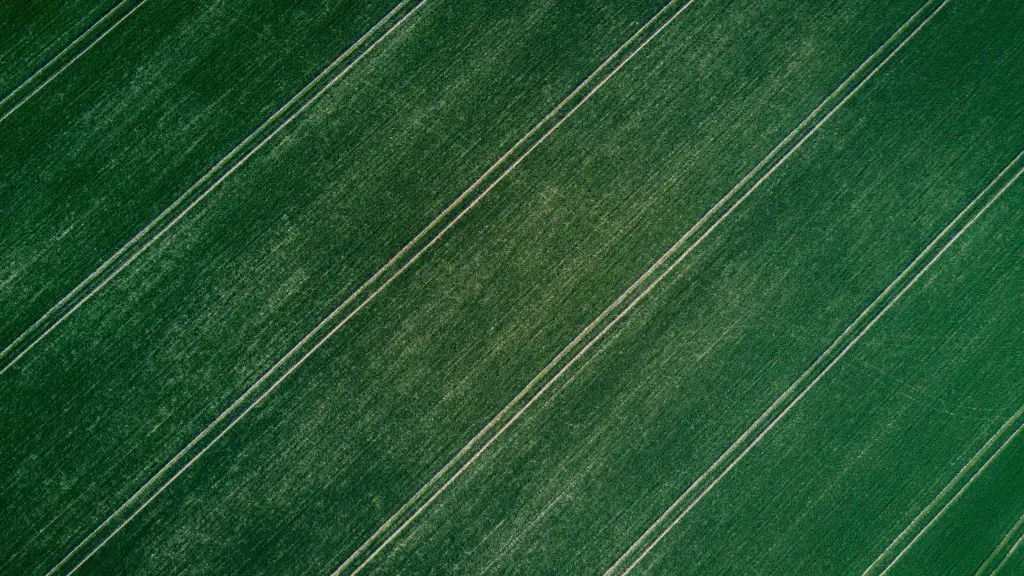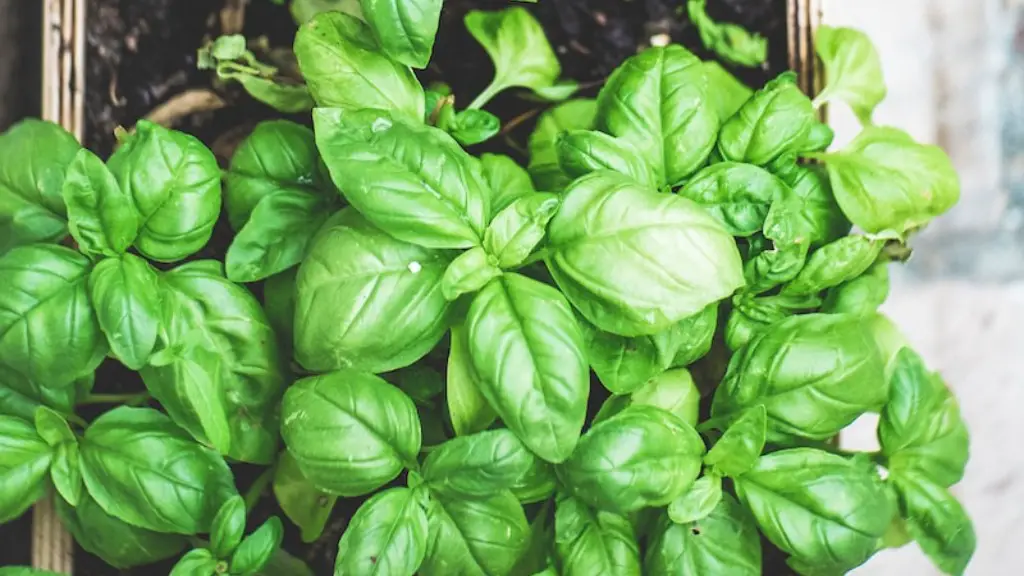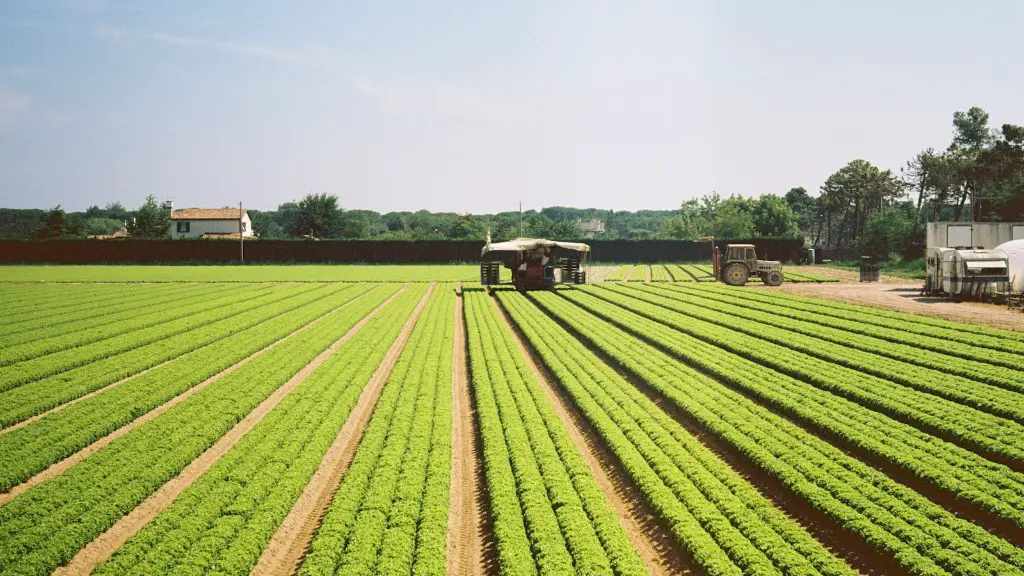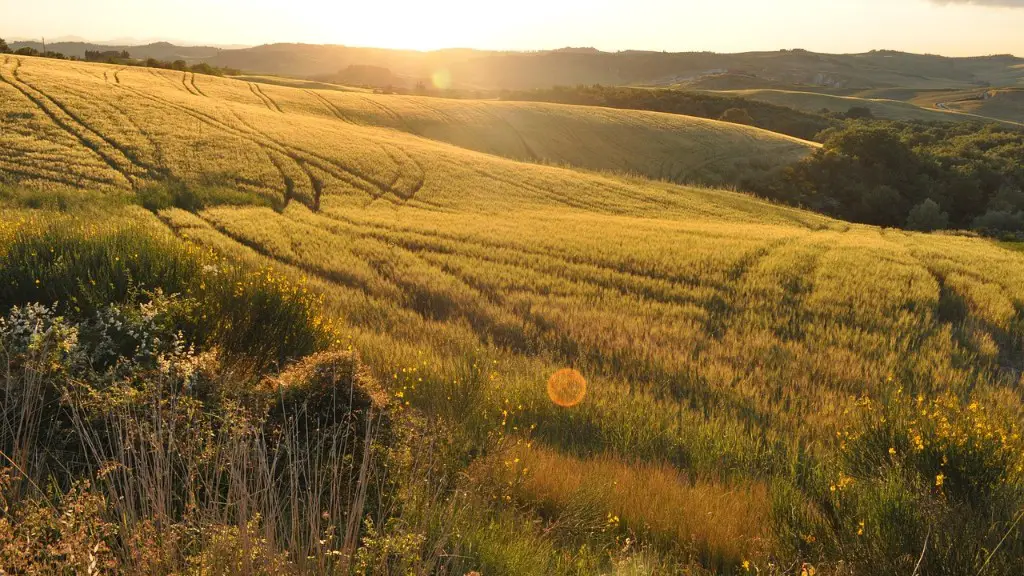The world’s population is growing at an alarming rate and with it the demand for food. In order to meet this demand, agriculture has had to become more efficient and productive. This has led to the development of modern techniques and technologies, such as genetically modified crops and heavy use of chemical pesticides and fertilizers. However, there is an increasing awareness of the negative environmental and health impacts of these practices. As a result, there is growing interest in organic farming as a more sustainable and environmentally friendly alternative to modern agriculture.
No, organic farming cannot replace modern agriculture. Modern agriculture uses more advanced techniques and equipment that allow for higher crop yields.
Can organic farming be an alternative to modern agriculture?
Organic farming is not feasible as an alternative to conventional farming under the prevailing circumstances. The main reason for this is that organic farming requires more land and labor than conventional farming, and the yields are often lower. In addition, organic farmers typically use more environmentally-friendly practices, which can add to the cost of production.
Organic farming is a process of producing food that is grown without the use of synthetic pesticides, herbicides, or fertilizers. This type of farming relies on techniques like crop rotation, cover crops, and composting to maintain soil health and fertility. Organic farmers also use mechanical means to control weeds and pests, and they often employ biological controls like predator insects and traps.
Will organic farming feed the world
Organic farming methods are those that conserve and regenerate resources while generating healthy food. These methods do not use more chemicals, polluting the environment in order to grow more corn to feed more feedlot animals. Organic farming can feed the world!
Organic farming is a type of agriculture that relies on natural processes, rather than on artificial inputs, to grow crops and raise livestock. This approach to farming can have a number of benefits, both for the environment and for human health.
Conventional agriculture is responsible for increased greenhouse gas emissions, soil erosion, water pollution, and threats to human health. Organic farming, on the other hand, has a smaller carbon footprint, conserves and builds soil health, replenishes natural ecosystems for cleaner water and air, and does not rely on toxic pesticide residues.
Why organic farming is better than modern farming?
There are many benefits to organic farming when compared to conventional farming practices. Organic farming uses fewer pesticides and chemicals, which can lead to less soil erosion and water pollution. Additionally, organic farms recycle animal wastes back into the farm, which helps to fertilize the soil and improve crop yields. However, these benefits come at a cost – organic food is often more expensive for consumers, and organic farms generally have lower crop yields than conventional farms.
Organic farming is a form of agriculture that relies on natural processes, rather than the use of synthetic inputs, to promote the growth of crops and livestock. There are many benefits of organic farming, including that it is environmentally friendly, promotes sustainable development, produces healthy and tasty food, is less expensive than conventional farming, and generates income through exports. organic farming is also a source of employment for many people.
What are the 5 disadvantages of organic farming?
The disadvantages of organic farming are that organic farmers may not use chemical pesticides or other synthetic chemicals, that organic food may not be truly organic at all times, and that organic farming requires more work and knowledge than conventional farming. However, the main disadvantage of organic farming is that it is more expensive than conventional farming. Additionally, organic farming requires more infrastructure, such as storage and processing facilities, than conventional farming.
There are a number of reasons why organic farming is better for the environment. Organic farming practices involve less soil erosion and pollution, and use less energy. Eliminating the use of pesticides in farming also benefits nearby birds and animals, and people who live close to farms.
Is organic farming really better
Organic food is grown without the use of chemical pesticides, which can have a number of benefits. Organic systems have been shown to produce higher yields in times of drought, use less energy, and release fewer carbon emissions than conventional farming methods.
Organic growers in the US face a number of challenges, including lower yields relative to conventional farming, difficulty maintaining high quality soil nutrients, gaining proper certifications and market access. While organic farming has a number of benefits, these challenges can make it difficult for growers to succeed.
Which state is No 1 in organic farming?
Organic farming is a type of agriculture that relies on natural processes, rather than the use of synthetic inputs, to enhance or maintain crop production. India is one of the leading countries in organic farming, with over 13 million hectares of land dedicated to organic agriculture.
The majority of organic farms in India are located in the states of Maharashtra, Madhya Pradesh, and Rajasthan. These three states account for nearly 70% of the total certified organic farmland in India. Other states with a significant amount of certified organic farmland include Uttar Pradesh, Karnataka, and Tamil Nadu.
The Indian government has been supportive of organic farming, and has implemented various policies and programs to promote its development. In 2016, the government launched the National Program for Organic Production (NPOP) to promote the growth of the organic sector. The program provides financial assistance to farmers for the conversion of their land to organic farming, and also supports the development of organic Inputs.
The organic sector in India is growing rapidly, with the value of organic products exports increasing from $1.3 billion in 2016-17 to $2.6 billion in 2017-18. The United States is the largest export market for Indian organic products, followed by the European Union and
The majority of organic crops depend on imported nitrogen that is derived from artificial fertilizers. This is because the nitrogen is ultimately used to grow crops to feed the animals on conventional farms. However, this imported nitrogen can be harmful to the environment if it is not managed correctly.
Why are people against organic food
Organic food is more expensive to buy than non-organic food. Many people believe that organic food does not allow the use of any chemicals. Contrary to popular opinion, organic food production does allow a limited number of chemicals to be used.
Organic farming has a number of disadvantages that make it less appealing to farmers and consumers alike. Perhaps the biggest disadvantage of organic farming is that it is more expensive than conventional farming. This is because farmers do not get as much out of their land as conventional farmers do. Production costs are also higher because farmers need more workers. Marketing and distribution is also not as efficient because organic food is produced in smaller amounts.
Why switch to organic farming?
Organic farming can be a profitable system of farming. Farmers who adopt organic production methods can achieve good output levels and lower production costs, which can lead to higher margins. In addition, organic products often command premium prices in the marketplace, which can further boost profits.
Organic farming has many advantages over conventional farming. After a five-year transition, organic yields match conventional yields. In years of drought, organic farming outperforms conventional farming by up to 40%. Farmers earn 3–6 times greater profit from organic farming. And, organic farming uses 45% less energy than conventional farming.
Conclusion
The jury is still out on whether organic farming can replace modern agriculture. On the one hand, organic farming is often more labor-intensive and thus more expensive. On the other hand, modern agriculture relies heavily on fossil fuels and chemicals, which can have negative environmental consequences.
There is no easy answer to whether organic farming can replace modern agriculture. On the one hand, organic farming has many benefits in terms of being environmentally friendly and producing healthy food. On the other hand, modern agriculture is more productive and efficient, which is necessary to feed the world’s growing population. Ultimately, the answer to whether organic farming can replace modern agriculture depends on the balance of these two factors.




